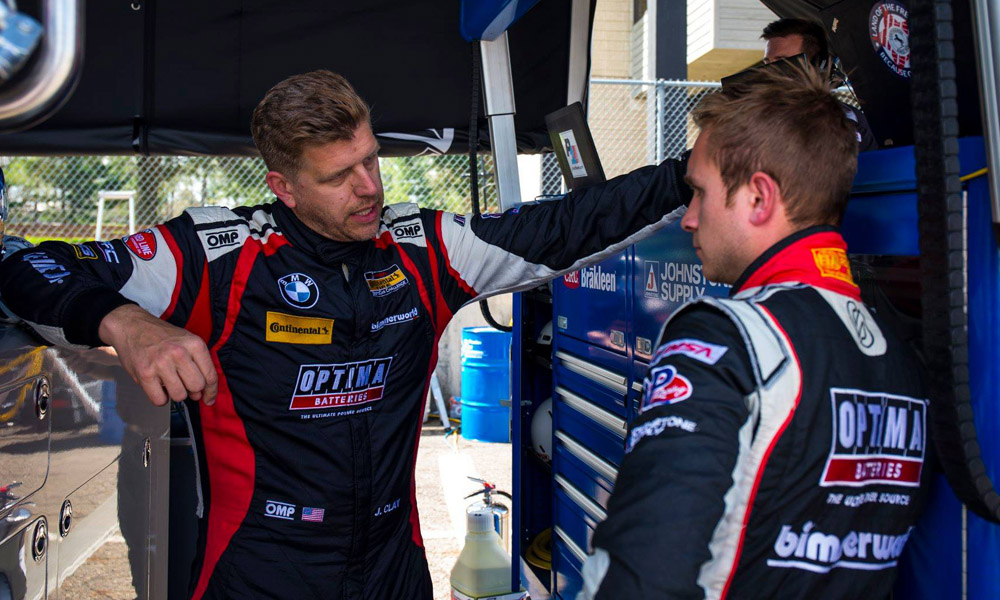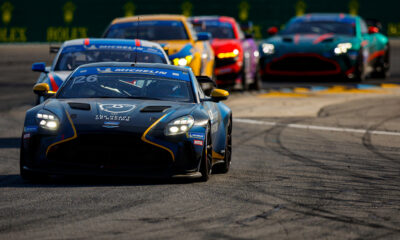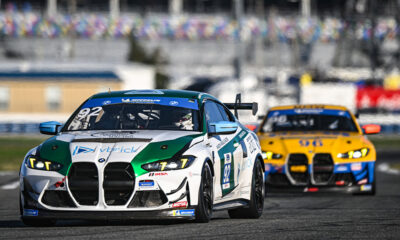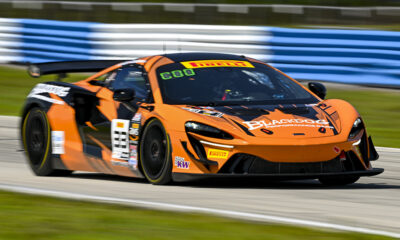
Photo: BimmerWorld Racing
Throughout the year, Continental Tire will focus on celebrating the fans, media, drivers, and teams and their contributions to sports car racing, including a weekly trip down memory lane in Sportscar365’s Continental Tire IMSA Reflections series.
James Clay’s BimmerWorld Racing operation has been a stalwart of IMSA Continental Tire SportsCar Challenge competition since they entered the series in 2010. This week, Clay reflects on the significance of the series to his business and his racing career.
What brought you and BimmerWorld Racing into Continental Tire Challenge?
“We came in in 2010 when it was still under Grand-Am sanction. We had eyeballed the series in 2007 when we were just building our E90 cars which was the 3 Series platform from one generation ago.
“We had considered moving at that time because I really like the two driver format for a lot of reasons.
“From my experience from the other series we were involved in, which was a one driver sprint series, watching that series and class go through its life cycle to the point where it essentially died, one of the real challenges was bringing in new people and getting them up to speed with the equipment and with the driving standards.
“It reached the point where everybody was the same speed, which was good, close racing, but it’s very hard for someone else to come into it.
“When a new driver comes in and they are back of the pack for almost their whole first year, it’s really hard for someone to want to continue on.
“Certainly as a team owner, I’m aware of the need to have cars on track, to have drivers to have cars on track, and the two driver combo has a lot of different strategies or approaches.
“One which is critical to a series and foundational to the success of a series I think is being able to usher in a new driver to a new car, a new class, and have success along the way.”
What has the series done for the business of BimmerWorld?
“For almost ten years we’ve built all of our Continental Tire Challenge cars in house. It was really the pinnacle of what we did, not only building our own cars but using all the products that we sell and hands on with those products in a really competitive racing environment.
“That developed our learning and fed the product catalog with things that we detirmined that we needed or needed to do better.
“It’s changed a little bit more recently because the end point to where we are today is buying factory race cars from BMW that are already prepared.
“That may or may not be with the parts that we would choose to use or or the partners that we would choose to use.
“Really, we started to go a little bit off the rails on the F30 Turbo project. That level of technology is really the catalyst for us buying factory race cars at this point globally.
“It became so difficult for an independent shop to build cars. Those F30s were just ridiculously expensive and a painful process.
“It became not just applying race parts and best practices but actually fully redeveloping a car to an almost factory level.
“Now, skip forward a few years to our current state with our GT4 cars, we are seeing things a little bit differently.
“We are working with BMW, with their engineers on their car. It’s almost like having a tour guide for the cars and the products.
“It’s a little bit less development on our end out of pocket, but there’s a lot of learning going on. It’s almost like having a friend who’s there to get the bill for your while you’re developing it.
“We identify the problem, we work with them to clearly identify the situation with what needs to happen, and then they come up with a solution and get it approved.
“It’s a lot less work with the same level of involvement for us currently, and as it has for years, supports our knowledge and product development which we can then share with our customers and use to make our BimmerWorld line of products broader and better.”
What are your fondest memories of racing in Continental Tire Challenge?
“As much as I have going on, the fondest memory I have is the last weekend at the track. It’s hard to think back and remember a specific one, and over the years there have certainly been a lot of great ones.
“I would say one of the most enjoyable environments, though, was when we were just starting with the F30 and beginning to have some success with that, but we were still running the E90 cars.
“It’s difficult to have four cars in that series with the equipment requirements and crew requirements, but every weekend we would go to the track and it was like going to camp with 40 of your best friends. It was a lot of fun.
“The team size, the family feel that I think our team promotes, it was just a super enjoyable time.”
What has Continental’s impact on sports car racing been from your perspective.
“I really have enjoyed working with Continental and getting to know them, not only as just a company but as people.
“Certainly Hoosier was involved as well when it was Hoosier before Continental purchased them and as they were working together through that purchase.
“As Hoosier, as Continental, it’s very clear that they put so much into the series to grow the series and embraced what we are and what we do. They used that to push their marketing message and to push their products.
“The fact that they are now a race tire manufacturer and weren’t previously, that’s a massive undertaking.
“Looking at a title sponsorship, a lot of times you can come across that from writing a check, but the level of involvement and the leaps that they’ve taken to truly be involved at the level they have been, it’s certainly much appreciated.
“I know they’re leaving at the end of the year and it’s certainly bittersweet, but it’s not the end of my involvement with Continental.
“They’re just too entrenched and too important to me as a person and us as a business for us to just move on to the next thing so we’ll still be hanging out with the Continental guys after this.”


























